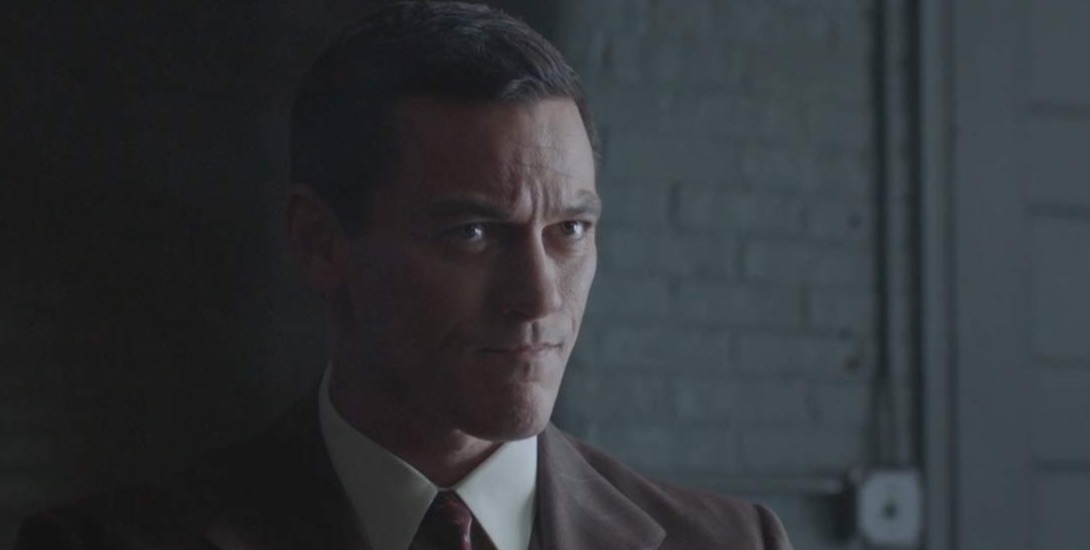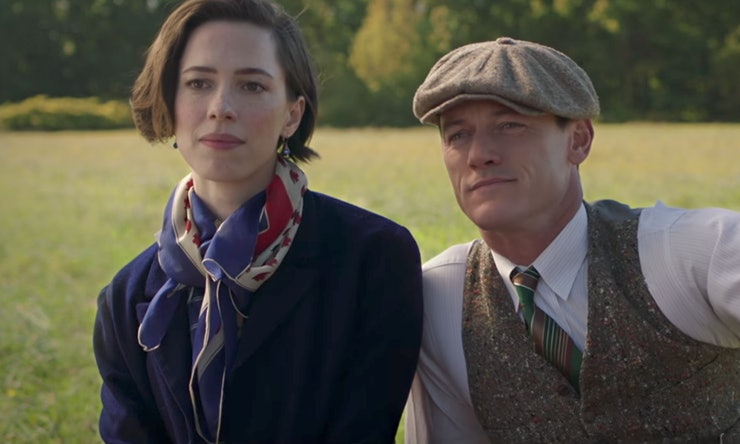[Editor’s note: This review may contain spoilers.]
Director: Angela Robinson
Writer: Angela Robinson
Stars: Luke Evans, Rebecca Hall & Bella Heathcote
Summary
The film portrays the allegedly true story of William Moulton Marston’s relationship with his wife Elizabeth and mistress Olive and how they inspired his comic book creation, Wonder Woman.

Positives
At its heart, the film is a love story, and a good one. It’s unconventional to some but the film wins the audience over on it. It’s an earnest piece with three charismatic characters that you genuinely want to see end up together.
While the film is not necessarily about Wonder Woman, it does share the character’s values. There’s a cyclical nature to this project. Marston’s life obviously influenced the Wonder Woman comics and the message of those comics is what inspires this film. People often have this perception that comic books weren’t taken seriously or weren’t worth taking seriously until Frank Miller showed up, and this film shows that isn’t the case. Marston, one of the earliest superhero writers, seemed to take Diana as seriously as anything he had ever done. He realized the potential of the medium before many other people did.
Biopics are difficult because films require structure. A movie has to keep the audience’s attention for two hours in a way that is satisfying to the narrative. But real life has no structure; it’s a series of random events. Finding the narrative in someone’s life can be difficult. Robinson cleverly uses Marston’s DISC theory to structure the story. It allows us to see Marston’s theories in action and how they apply to the three characters. That’s a smart screen writing choice that works to the film’s benefits. I wish the film didn’t show this in the transitions but that’s not a big deal.
The entire cast is solid, but the standout is Rebecca Hall as Elizabeth. She is instantly charming and hilarious. Her hostile attitude towards everyone combined with the foul mouthed dialogue works so well. One of her first lines is asking Bella Heathcote’s Olive to not f*** Luke Evans’ Marston. It sets the tone well. Elizabeth is also the most sympathetic character. She struggles the most with the relationship and its consequences which makes it easy for her to be the audience’s avatar.

Negatives
This is a minor nitpick, but no one ages. The film spans approximately 20 years and the characters never look any different. At the end of the film, they are supposed to be in their 50s; it’s kind of silly when they all still barely look 30.
There’s also a good chance that the film is almost entirely fictitious. Christie Marston, Marston’s grandaughter, says that the film is not even remotely true and Robinson admits that she did not interview any members of the Marston family opting instead to follow her own interpretation of the events. That logic works when adapting a fictional story but seems like a strange choice when portraying the lives of real human beings. Quite a bit of the film contradicts what is said in Jill Lepore’s The Secret History of Wonder Woman. However, some of Christie Marston’s remarks also contradict that book. However, there are some elements that are absolutely fiction. An example is the review board that is used as the framing device. Wonder Woman was put on a blacklist by the National Organization for Decent Literature because of her costume. The criticisms of the the book containing BDSM and homosexuality didn’t become prevalent until Fredric Wertham started his attack on comic books. Christie Marston also claims that the book burning did not occur until after her grandfather had died.
Verdict
I find this interesting. If the film is entirely fiction, as Christie Marston claims, and it is her family so I’m inclined to believe her, does that take away any merit the film has? Lindsay Ellis talks about something similar in an examination of Saving Mr. Banks and that film’s inaccurate portrayal of that story. Ultimately, my answer is no, but that is going to differ from person to person. The book burning scene is fiction and yet, it’s one of the film’s best moments. Marston watching as people burn his creation because they don’t understand it is haunting. And one could easily argue that the moment is meant to visualize feelings Marston had at the time when the medium and his work was unfairly criticized. Films are not always literal and can often be more about emotions and ideas than facts. What the film stands for and the story it tells, factual or not, is engaging and works as a film.
